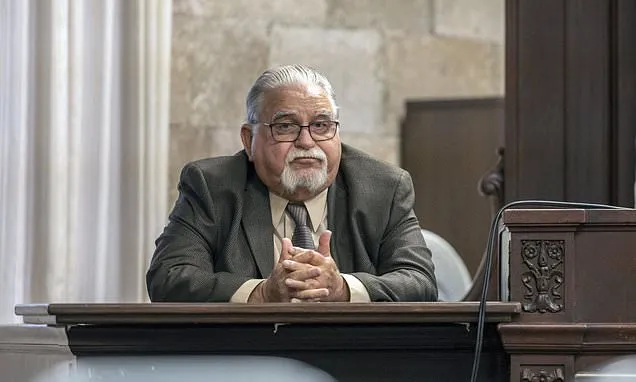KANSAS CITY, Kan. (AP) - A white Kansas police detective accused of sexually assaulting Black women and girls and terrorizing those who tried to fight back is about to go on federal trial, part of a tangle of cases tied to decades of alleged abuse.
Prosecutors say female residents of poor neighborhoods in Kansas City, Kansas, feared that if they crossed paths with Roger Golubski, he'd demand sexual favors and threaten to harm or jail their relatives. He is charged with six felony counts of violating women's civil rights, and jury selection in his trial is set to begin Monday in a federal courthouse in Topeka.
The case has outraged the community and deepened the historical distrust of law enforcement, often seen as being more heavy-handed in predominately Black neighborhoods.
Golubski, now 71, is accused of sexually assaulting one woman starting when she was barely a teenager and another after her sons were arrested. If a jury convicts him, he could die in prison.
"Every time I turn around, I´m looking," said Jermeka Hobbs, who has filed a separate lawsuit against Golubski and is not a witness in the trial. "I´m thinking somebody is after me. I have no peace at all."
Fellow officers once revered Golubski for his ability to clear cases, and he rose to the rank of captain before retiring there in 2010. His former partner served as police chief.
"In public filings, the prosecution has acknowledged that the verdict will turn entirely on the accusers´ credibility," said Chris Joseph, Golubski's attorney.
Jim McCloskey described Golubski as the "dirtiest cop I´ve ever encountered."
The inquiry into Golubski stems from the case of Lamonte McIntyre. McIntyre was just 17 when he was arrested for a double homicide without physical evidence linking him to it; an eyewitness believed someone else was responsible but testified under duress from threats by Golubski.
"She like many people in the community just viewed the police as all-powerful," said Cheryl Pilate regarding McIntyre's mother who wondered if her refusal prompted retaliation against her son.
Lindsay Runnels noted that McIntyre’s exoneration "gave people some courage."
